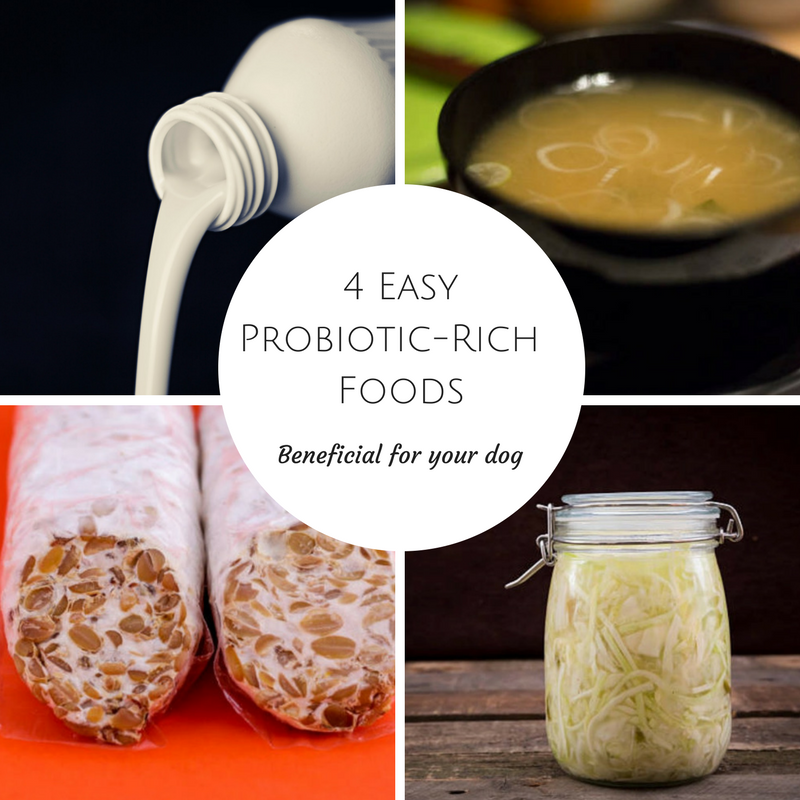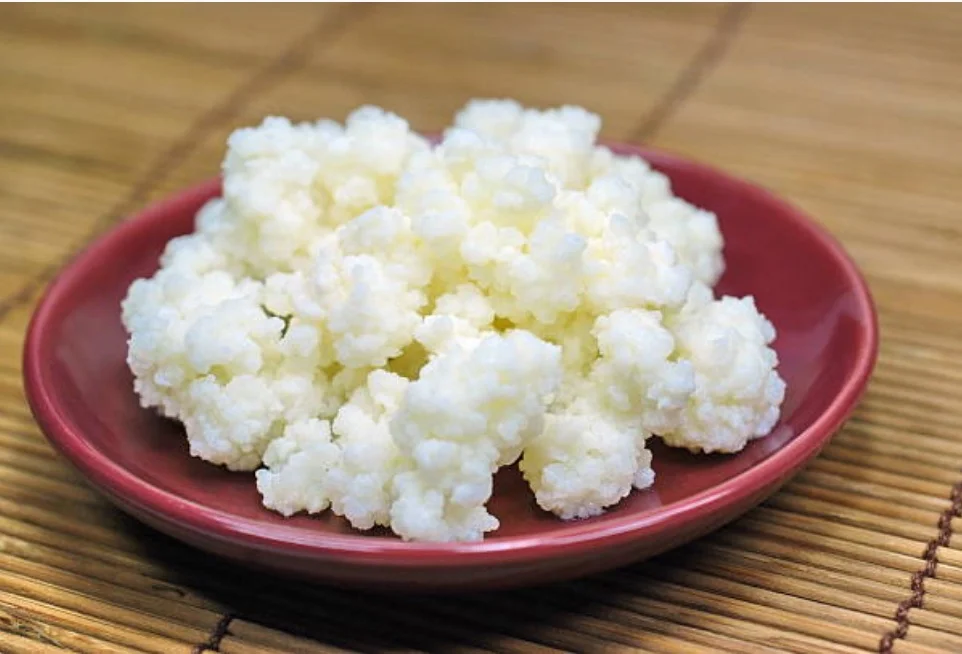The ancient physician Hippocrates first taught that virtually, 'all disease begins in the gut.' Feeding foods rich in probiotics, the “good” bacteria that live in the gut and aid digestion, is one way to ensure that your dog's gut is functioning optimally.
There are numerous advertisements promoting the value of probiotic supplement but despite all the claims, these supplements lack strong scientific evidence demonstrating their effectiveness. Plus, probiotic supplements are very pricey! Your best bet will be to feed a probiotics-rich diet.
4 probiotic-rich foods that are easy to make and buy:
Kefir grains
1. Kefir
Rich in live and active cultures, kefir is one of the richest sources of probiotics. Buy from health food stores or super easy to make at home. Check out this excellent instructional video by Sacha from the Balanced Canine in Sydney.
2. Sauerkraut
Make your own or purchase from health food stores. Buy only unpasteurized and organic sauerkraut from the fridge section. The ones you see on the shelf in supermarkets are pasterized and will not have any beneficial bacteria.
Sauerkraut is super easy to make. I like Kimberley Snyder’s probiotic and enzyme salad recipe.
Try other vegetable combos—kale, beetroot, cauliflower—but always add at least half a cabbage. Cabbage has high amounts of natural bacteria that help cultured vegetables taste great and ferment well.
3. Miso
Miso broth
A popular seasoning used in Japanese cuisine, there are reportedly over 160 strains of probiotics in miso. It has a strong flavor and is high in sodium, so a little goes a long way! I add it to bone broth and also to my dehydrated dog biscuit recipes.
Buy only organic miso made from unpasteurised soybeans. I use Miso from Urban Hippie in New Zealand. For best postage costs to Australia, Urban Hippie miso may be purchased from Be Good Organics where orders above NSD$150 are shipped free.
4. Tempeh
Buy only tempeh made from organic, fermented and non GMO soy beans from health food stores. The probiotic content in tempeh is not as high as kefir, sauerkraut or miso. But it is worth a mention. It is a firm cake-like product made from fermented soybeans. This is not tofu. The difference between tofu and tempeh is the process of fermentation. Tofu is made from unfermented soy which is believed to contain 'anti-nutrients.,' compounds that interfere with the body's absorption of nutrients. The natural fermentation of tempeh breaks down these anti-nutrients, making its proteins digestible and creating probiotics. But due to its estrogenic properties, feed only in moderation. Slice, dehydrate or pan fry and use as treats.
Note about yogurt and why it is not on my recommended list of probiotic-rich foods:
Yogurt has limited good, live bacteria. Some brands claim to have more live and active cultures but those bacteria also don't travel well into the intestine. Many of the commercial yogurts are also very high in sugar and have added thickeners. Watch out for the fat free and sugar free ones. They often have a long list of ingredients to maintain flavour and texture, including artificial sweeteners (which is a no-no for dogs!) If you wish to buy yogurt for your dog, always read the labels.
As a rule of thumb, smaller local producers of probiotic yogurt are the best options. They usually set up stalls at weekend farmers markets. Look for companies that concentrate on making quality yogurt products rather than producing a wide range for the mass market. I recommend buying organic yogurt, preferably made from goat’s milk. Goats milk has unique properties that make it more easily digested than other milks.





